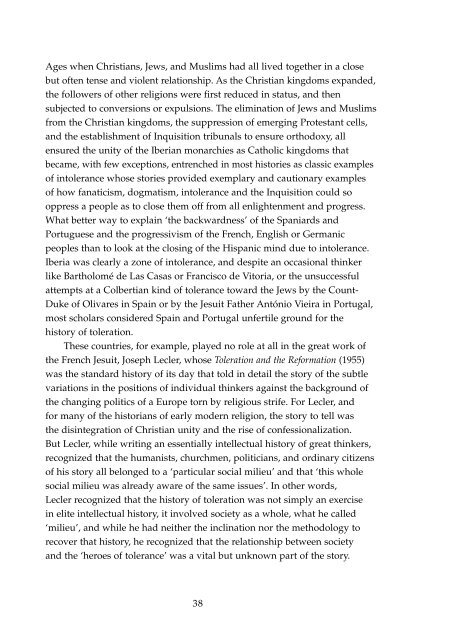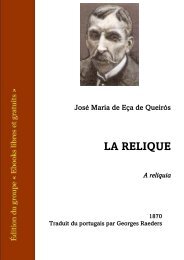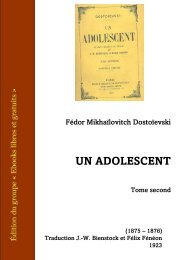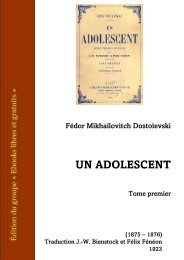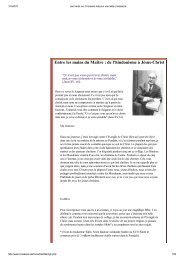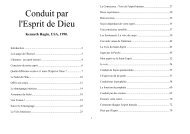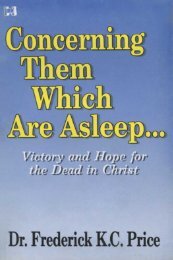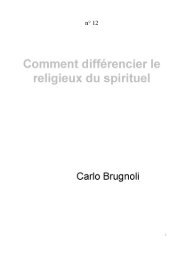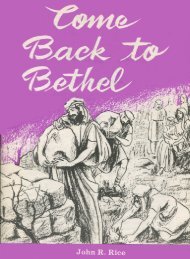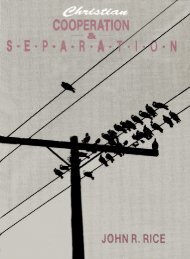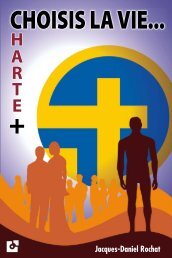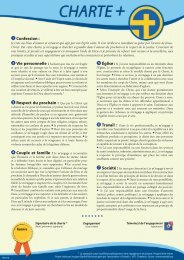The Expansion of tolerance
Create successful ePaper yourself
Turn your PDF publications into a flip-book with our unique Google optimized e-Paper software.
Ages when Christians, Jews, and Muslims had all lived together in a close<br />
but <strong>of</strong>ten tense and violent relationship. As the Christian kingdoms expanded,<br />
the followers <strong>of</strong> other religions were first reduced in status, and then<br />
subjected to conversions or expulsions. <strong>The</strong> elimination <strong>of</strong> Jews and Muslims<br />
from the Christian kingdoms, the suppression <strong>of</strong> emerging Protestant cells,<br />
and the establishment <strong>of</strong> Inquisition tribunals to ensure orthodoxy, all<br />
ensured the unity <strong>of</strong> the Iberian monarchies as Catholic kingdoms that<br />
became, with few exceptions, entrenched in most histories as classic examples<br />
<strong>of</strong> in<strong>tolerance</strong> whose stories provided exemplary and cautionary examples<br />
<strong>of</strong> how fanaticism, dogmatism, in<strong>tolerance</strong> and the Inquisition could so<br />
oppress a people as to close them <strong>of</strong>f from all enlightenment and progress.<br />
What better way to explain ‘the backwardness’ <strong>of</strong> the Spaniards and<br />
Portuguese and the progressivism <strong>of</strong> the French, English or Germanic<br />
peoples than to look at the closing <strong>of</strong> the Hispanic mind due to in<strong>tolerance</strong>.<br />
Iberia was clearly a zone <strong>of</strong> in<strong>tolerance</strong>, and despite an occasional thinker<br />
like Bartholomé de Las Casas or Francisco de Vitoria, or the unsuccessful<br />
attempts at a Colbertian kind <strong>of</strong> <strong>tolerance</strong> toward the Jews by the Count-<br />
Duke <strong>of</strong> Olivares in Spain or by the Jesuit Father António Vieira in Portugal,<br />
most scholars considered Spain and Portugal unfertile ground for the<br />
history <strong>of</strong> toleration.<br />
<strong>The</strong>se countries, for example, played no role at all in the great work <strong>of</strong><br />
the French Jesuit, Joseph Lecler, whose Toleration and the Reformation (1955)<br />
was the standard history <strong>of</strong> its day that told in detail the story <strong>of</strong> the subtle<br />
variations in the positions <strong>of</strong> individual thinkers against the background <strong>of</strong><br />
the changing politics <strong>of</strong> a Europe torn by religious strife. For Lecler, and<br />
for many <strong>of</strong> the historians <strong>of</strong> early modern religion, the story to tell was<br />
the disintegration <strong>of</strong> Christian unity and the rise <strong>of</strong> confessionalization.<br />
But Lecler, while writing an essentially intellectual history <strong>of</strong> great thinkers,<br />
recognized that the humanists, churchmen, politicians, and ordinary citizens<br />
<strong>of</strong> his story all belonged to a ‘particular social milieu’ and that ‘this whole<br />
social milieu was already aware <strong>of</strong> the same issues’. In other words,<br />
Lecler recognized that the history <strong>of</strong> toleration was not simply an exercise<br />
in elite intellectual history, it involved society as a whole, what he called<br />
‘milieu’, and while he had neither the inclination nor the methodology to<br />
recover that history, he recognized that the relationship between society<br />
and the ‘heroes <strong>of</strong> <strong>tolerance</strong>’ was a vital but unknown part <strong>of</strong> the story.<br />
38


